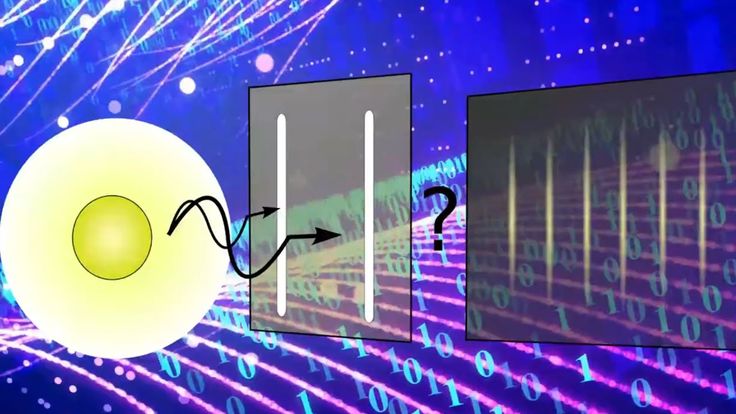In the realm of computing, the advent of quantum computers heralds an extraordinary paradigm shift, challenging our understanding of information processing. Traditional computers, which rely on bits as the fundamental units of data, exemplify linear progression—each bit exists as either a 0 or a 1. In contrast, quantum computers leverage the principles delineated by quantum mechanics, wherein quantum bits, or qubits, can exist simultaneously in multiple states due to the phenomena of superposition and entanglement. This duality emerges from the complexities of quantum states, prompting both intrigue and inquiry into what quantum computing truly represents.
At its core, a quantum computer operates on fundamentally different principles compared to classical machines. The classical bits serve as the building blocks of computation, establishing a binary framework that dictates data processing. Quantum bits, however, transcend this binary limitation. Harnessing the property of superposition, a qubit can embody a 0, a 1, or any coherent combination thereof. This multiplicity enables quantum computers to process vast amounts of information concurrently, dramatically enhancing computational efficiency for certain tasks.
One cannot ignore the implications of entanglement, another staple of quantum behavior. When qubits become entangled, the state of one instantaneously influences the state of the other, regardless of the spatial separation between them. This quantum correlation enables quantum computers to perform complex calculations at unprecedented speeds, cultivating possibilities for advancements in numerous fields such as cryptography, optimization, and materials science.
The promises of quantum computing are synonymous with a shift in technological perspective. Could it be that the latent capabilities of quantum computers will reshape our approach to complex problem-solving? The notion tantalizes researchers and technologists alike. Problems that typically would require an exorbitant amount of time for classical computers—such as factoring large primes essential to cybersecurity—could potentially be resolved within minutes or even seconds using quantum algorithms like Shor’s algorithm. Such capabilities provoke curiosity regarding the very foundation of computer science and the security protocols currently in place.
One must consider the foundational architecture of quantum computing. Quantum computers do not merely necessitate superior software but also demand cutting-edge hardware designed to maintain the fragile state of qubits. Quantum coherence is essential; qubits must remain isolated from environmental interruptions, as decoherence can lead to the loss of quantum information. Several qubit implementations have been proposed, ranging from trapped ions to superconducting circuits, each presenting unique advantages and challenges. This hardware complexity invites a multidisciplinary approach, combining physics, engineering, and computer science to further refine quantum technological constructs.
The superposition and entanglement properties of qubits extend beyond mere speed enhancements. Consider optimization problems, where traditional algorithms falter in scalability with increasing data points. Quantum algorithms, like Grover’s search algorithm, exhibit a quadratic speedup in searching through unsorted databases. Such progress opens pathways in various domains, from logistics to artificial intelligence, stimulating curiosity regarding the applications of quantum technology in optimizing real-world problems.
Moreover, one must examine the intersection of quantum computing with machine learning. The synthesis of these domains promises remarkable advancements. Quantum machine learning offers the potential to accelerate data processing, enabling deeper insights into vast datasets with complex structures. This integration presents a fertile ground for research, unearthing the capabilities of quantum models that could redefine machine learning paradigms.
Despite the immense potential entailed in quantum computing, it is crucial to temper enthusiasm with a pragmatic assessment of the hurdles yet to be surmounted. The nascent stage of this technology is fraught with challenges, including issues related to scalability, error correction, and qubit stability. The delicate nature of qubits necessitates innovative strategies to enhance their coherence times and error rates. Researchers continue to grapple with these technical obstacles, striving to transition from proof-of-concept devices to robust, commercially viable quantum computers.
This intersection of quantum theory and technical application ignites a plethora of inquiries regarding the future landscape of computing. Will quantum supremacy—the point at which quantum computers can outperform classical counterparts for specific tasks—be achieved within a tangible timeframe? What ethical considerations will arise from the disruptions engendered by quantum capabilities? The ability to unravel the complexity of information and its implications for privacy and security begs introspection across interdisciplinary domains.
In summary, a quantum computer is not merely a novel instrument of computation; it is a testament to humanity’s insatiable quest for knowledge and understanding. As researchers endeavor to unlock the potential embedded in quantum mechanics, it becomes imperative to cultivate a nuanced understanding of this technology and its broader implications. Encouraging curiosity and critical thought will be essential as society navigates the trajectory of quantum computing. The anticipation surrounding its evolution compels us to consider the profound shifts in perspective that await, as the boundaries of computer science and technology expand into realms hitherto unimagined.












